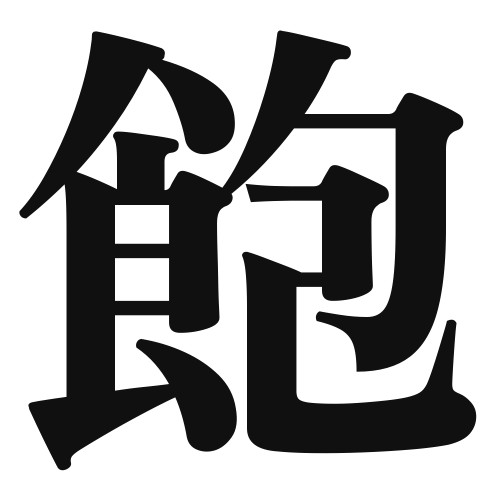1. Overview of Meaning
The kanji “飽” (pronounced “hou” or “aku”) means “to be satisfied” or “to be full.” It often refers to a state of having enough, particularly in relation to food or desires.
2. Formation and Radical
Formation of the Kanji: The kanji “飽” is a compound character (会意文字) that combines the radical for “food” (食) and the character “包” (which means “to wrap” or “to cover”). This suggests the idea of being filled or covered with food.
Radical: The radical of “飽” is 食 (shoku), which relates to food and eating.
3. Examples of Usage
Common Words and Phrases: Some common words that include “飽” are 飽きる (akiru – to get tired of) and 飽和 (houwa – saturation).
Example Sentences in Daily Conversation:
- この料理は美味しいけれど、もう飽きた。(This dish is delicious, but I’m already tired of it.)
- 彼はゲームに飽きてしまった。(He has gotten bored of the game.)
4. Synonyms and Antonyms
Similar Kanji: A similar kanji is 満 (man), which means “full” or “satisfied,” but it often refers to a more general sense of fullness, not just in terms of food.
Opposite Kanji: The opposite kanji is 渇 (katsu), which means “thirsty” or “to be in need,” indicating a lack of something.
5. Cultural and Historical Background
Relation to Japanese Culture: The concept of being “飽” is significant in Japanese culture, where moderation and balance in consumption are often emphasized.
Proverbs and Idioms: One common saying is “飽きるほど食べる” (to eat until one is tired of it), which reflects the idea of overindulgence.
